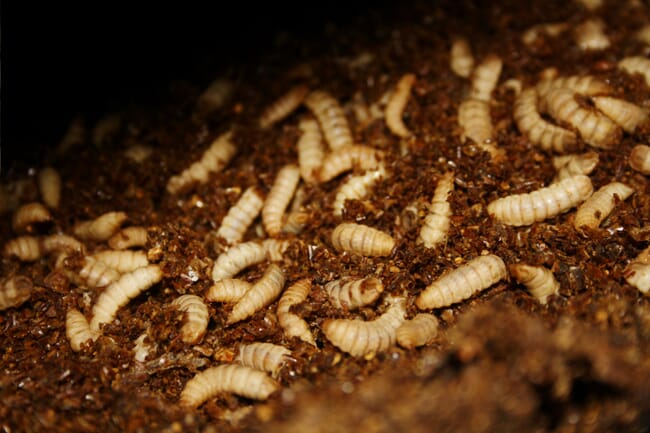
The nutritional profile of black soldier fly meal makes it a good source of nutrition in the aquaculture industry © Agronutris
After years of R&D, insect meal is now seen as a promising new feed ingredient in the aquaculture industry. Identifying the suitability of black soldier flies as a novel feed ingredient, innovative aquafeed company, BioMar, has joined forces with Agronutris – a French biotech company specialising in black soldier flies – to produce the next generation sustainable insect meal designed for aquaculture.
“Black soldier fly meal has always been an interesting prospect that could be well suited for aquafeeds,” said Fernando Norambuena, BioMar’s global category manager – novel raw materials, in a press release. “In Agronutris we have found a partner that shares our mission and dedication to reducing the environmental impacts of our aquafeeds. They have developed a scalable model for black soldier fly able to meet the nutritional and sustainability profile required by us and the industry,”
“For insect meal to successfully make its way into aquafeeds, it must demonstrate high nutritional value and support good growth and health for the fish and shrimp. Our innovative product has a great nutritional profile that is well suited for the aquaculture industry,” added Chris Haacke, director of business development at Agronutris.
Agronutris' solution is to bring a stable, high-quality product with a high sustainability performance demonstrated by a robust life-cycle assessment. The biotech company has created an approach where by there is a clear vision of moving from a novel source of protein into an ingredient that has an impact at a scale relevant to the aquaculture industry.
“A truly sustainable insect meal should be decoupled from the human food supply chain and fed off a substrate based on waste foods and by-products. With Agronutris, we see a viable, scalable model for producing black soldier fly meal that could see this product become a good source of nutrition in aquaculture”, concluded Vidar Gundersen, global sustainability director at BioMar.
There is a strong strategic alignment between Agronutris’ mission to supply low environmental impact alternatives and BioMar, which has placed sustainability at the heart of its future strategy with the aim of 50 percent of ingredients from a circular and restorative economy and lowering its feed carbon footprint by a third by 2030.




